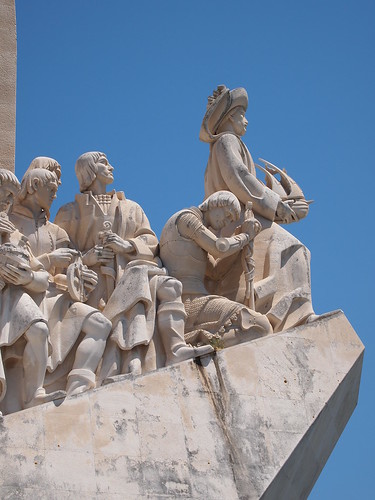|
We are talking about Portugal, Spain and England in the 15th century, so what on earth has knowledge management got to do with it? Let me explain.
The 15th century Navigators were, absolutely literally, heading off into the unknown, and their lives, as well as their fortunes, were at risk. Knowledge - knowledge of existing discoveries, and where the unknowns still were - was vital to them, and knowledge was their main product on their return (well, knowledge, and shiploads of gold).
Part of the eminence of Portugal in the navigation race was down to the KM techniques of Henry the Navigator, Prince of Portugal. Henry allegedly created the Sagres School - the most advanced navigation study and research centre of the time, located in his own estate at Sagres - where he gathered state of the art knowledge on astronomy, cartography and navigation. This was the Knowledge Centre - the "Centre of Navigational Excellence". According to this site
"The school of navigation was like a magnet to the best brains in Europe concerned with the nautical sciences. Under Henry's patronage, a community of brilliant scholars came here to teach and to study, and accumulated and correlated nautical knowledge as it was brought back by captains of successive voyages to hitherto unknown places. The scholars in turn instructed less experienced captains about Atlantic currents and wind systems and the latest navigational methods. Cartography was refined with the use of newly devised instruments. Maps were regularly updated and extended. A revolutionary type of vessel, the caravel, was designed".Before the captains set off on their journeys of discovery, they would visit the Sagres School, talk at length with the captains from previous voyages, study and copy the existing maps, train in the principles of navigation and map making, and read through the exploration journals from previous voyages (usually taking these journals with them, as reference). They would start with as full a cargo of knowledge as they could manage.
Then, as they explored, they would capture their own knowledge, in the form of their own journals, and (most important) their own, new, maps. Gradually, voyage by voyage, the white spaces on the maps were filled in, and taken back to the Sagres school to build up the body of knowledge of navigating the new world. This knowledge was a hugely competitive advantage for Portugal, and jealously guarded from Spain and from England - the main competitors for new territory.
So what can this teach the organisations of today? Are there relevant lessons that we can learn from the Navigators?
Yes there are. Wherever a project is exploring "unknown territory" they can follow the principles of Henry the Navigator.
- Know the value of your knowledge. Knowledge of navigation, and of the coasts of Africa, was of huger competitive advantage in the 15th century, as it allowed Portugal access to resources that were inaccessible to her competitors. (Incidentally, I am not condoning the imperialism and slave trading that was associated with these voyages - I am merely pointing out the deliberate and highly effective management of knowledge for competitive advantage. I am sure today's competitive organisations are far more ethical, though perhaps not as consciously aware of the value of knowledge.)
- Find the high level sponsor. The King would have been the ideal sponsor, the King's Son is pretty good as well. The sponsor had the vision to see what was needed, the resources to make the investment in knowledge, and the incentive to drive the knowledge forward (in this case, the incentive was becoming very rich).
- Build the knowledge centre. Where you have competitive knowledge, it needs to be owned. Henry built the Sagres school to develop knowledge of navigation, and headed it himself (note however that there is some dispute among historians about this).
- Learn Before. Ensure that people setting off on new projects or new activities visit the knowledge centre (whether this is real or virtual), talk at length with the managers of previous projects (peer assist), study and copy existing processes, read through the lessons from the past, train in the new technologies.
- Learn during. Make sure project leaders make their own "map" of the project journey, filling in the unknowns, using techniques such as After Action review or project blogs to keep journals of the learning.
- Learn After. Make sure that new knowledge is brought back to the organisation. Project managers should not just be delivering the project scope, they should be delivering knowledge as well.
- Update the Knowledge base. Extend the knowledge maps. Fill in the white spaces. Keep the knowledge safe.
This is can be YOUR competitive advantage - your route to new resources.





No comments:
Post a Comment